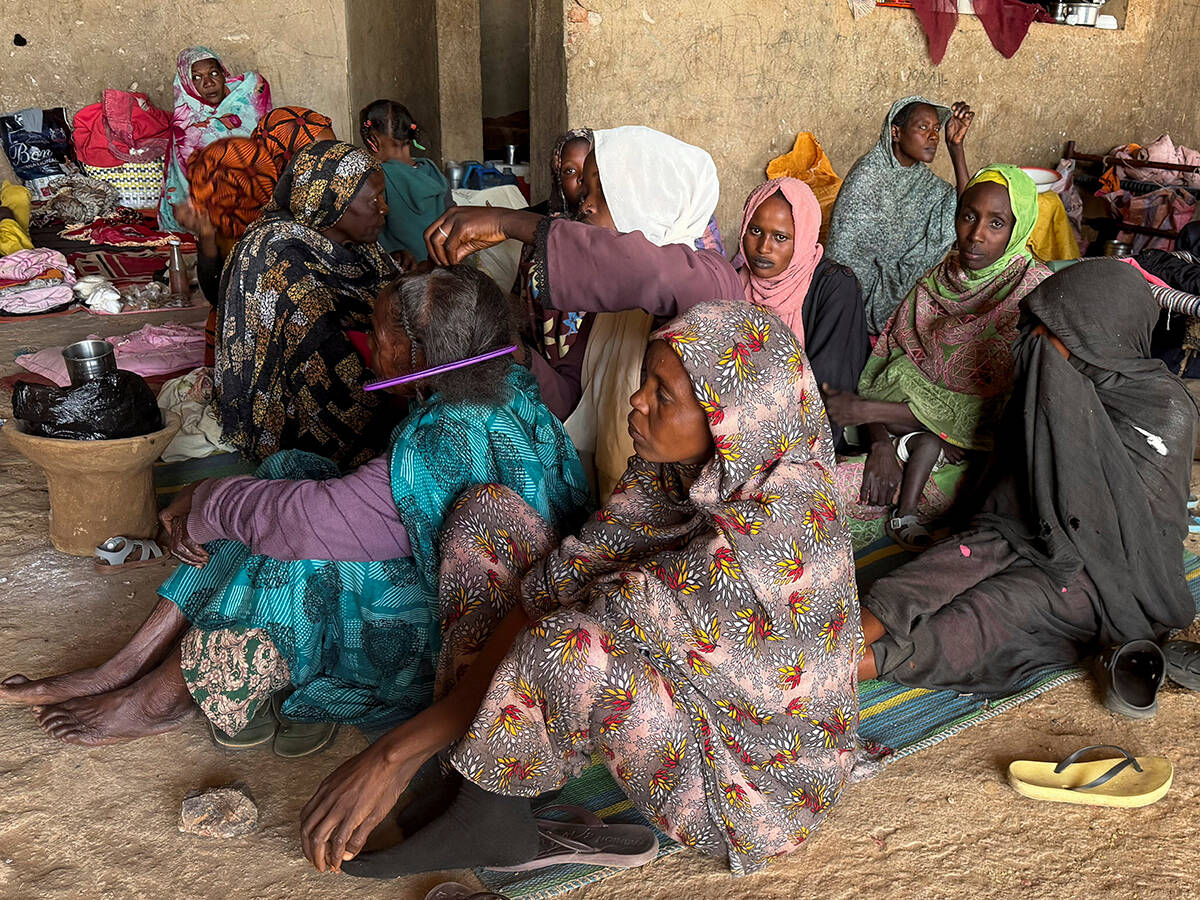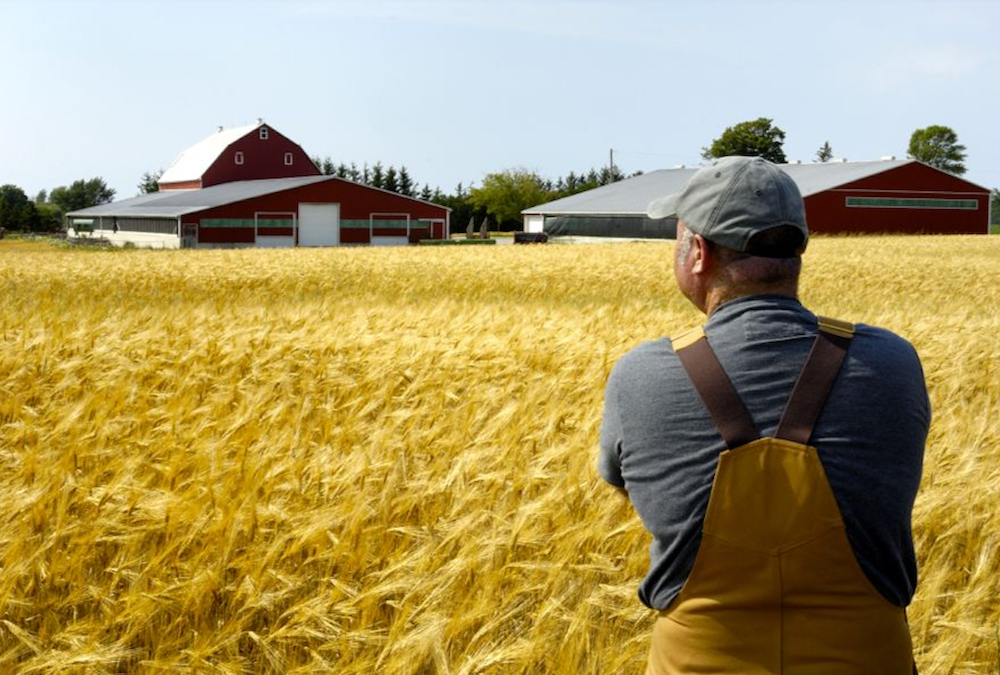The Manitoba Crop Alliance (MCA) remains focused on research to improve farmers’ returns, says its outgoing chair.
Reston-area seed grower and cattle producer Fred Greig vacated the position following the checkoff-funded organization’s second annual meeting held online Feb. 17. However, he remains a member on the MCA’s wheat and barley committee.
“I thought it was time for somebody else to chair the organization,” he said in an interview after the meeting.
East Selkirk farmer Doug Martin also left the 10-member MCA board.
Three new members have joined that board: Carl Bangert of Beausejour, Rauri Qually of Dacotah and Boris Michaleski of Ashville.
Bangert is an existing delegate on the MCA’s corn committee, while Qually and Michaleski are wheat and barley committee delegates.
Greig and Martin served on the steering committee that brought five commodity groups, representing six crops (spring and winter wheat, barley, corn, sunflower and flax) together to form the MCA Aug. 1, 2020, following several years consultations with farmer members.
Grieg was a director with the Manitoba Wheat and Barley Growers Association when it was formed in 2013, became its chair in 2015 and then MCA’s first chair.

“We got a lot of the heavy lifting done on the structure and organization so now they can focus on the core business (research and production),” Greig said.
Greig said he enjoyed the job.
“I think the thing that surprised me the most is how positive it was going to be for all staff involved (post-merger),” he said.
“There’s a tremendous amount of dedication from staff. They seized the vision from Manitoba farmers and took it right through to fruition and exceeded expectations for sure.
“It’s really exciting to see the quality of people applying for the jobs at Manitoba Crop Alliance.”
- Read more: MCA resolutions on better data on grain sales, gene editing regs
Read Also

Global humanitarian aid slashed by one-third
Humanitarian aid around the world was cut by a third in 2025 and Canada is one of the culprits.
During the fiscal year ending July 2021, MCA spent $5.4 million on 108 research projects, its financial report shows, accounting for 65 per cent of spending.
“We are pleased to share that in 2020-21 MCA was able to leverage each dollar invested in research to $11, stretching each producer dollar further,” MCA chief operating officer Darcelle Graham told the meeting.
She also noted Manitoba farmers who paid MCA levies in 2020-21 can claim a 33.44 per cent federal tax credit.
MCA earned $1.5 million in net revenue. Checkoff refunds totalled $491,573.
With crop production down due to drought in 2021, the MCA estimates it could have a $970,000 deficit when the current fiscal year ends July 31.
“So luckily we have a sizable reserve fund so I don’t think we’re going to have too adverse a situation,” Greig told the meeting.
“I think that’s the absolute worst-case scenario,” he said in an interview later. “I am going to guess that we’re probably going to be closer to a balanced budget.”
A Manitoba report on the province’s four Ag Diversification Centres is expected soon, Greig told the meeting. There could be opportunities for the MCA to work with the centres, he added.
“We feel that would be a real nice fit that we could tie into doing even more of our on-farm research,” he said later.
The goal would be to supplement the centres’ research, not allow the Manitoba government to off-load the expense on farmers.
In the MCA’s annual report Greig warned the federal government’s budget deficit, which grew considerably to help the country through the COVID pandemic, could see cuts to research funding.
“In light of this, we suspect the responsibility is going to be shifted and research is going to have to be farmer driven and farmer funded,” he wrote. “MCA will continue to work for members in prioritizing and selecting research projects and will keep you informed on what we are up to through our various communication channels.”
However, Greig said later ideally farmer dollars should continue to supplement Ottawa’s investment, not replace it.
In addition to funding public researchers, MCA is doing whole-farm research, which looks at the entire farm, not just one crop.
“I think we’re going to be able to see lots of projects and lots of dollars flow into those things,” he said. “I think we’re on the verge of some big stuff.”
Chief executive officer Pam de Rocquigny reviewed the MCA’s strategic plan based on the vision that MCA investments should make every Manitoba farmer member more productive and sustainable.
The MCA has been discussing whether the organization should research products that claim to make nutrients more available to plants. One concern is there are so many on the market, de Rocquigny told Deleau farmer Ian Robson, who suggested the idea.
In answer to another question Greig said he was happy with how Cereals Canada, which the MCA is a member of, is doing on market access issues.
Robson also raised concerns about the contracts farmers sell to lock in prices and delivery opportunities — usually before the crop has been harvested.
Last year because of the drought some farmers sold more than they grew causing them additional hardship either having to pay a lot to buy grain to fill their contract or pay the grain company so it could buy the grain somewhere else.
While Lowe Farm farmer Wilfred (Butch) Harder said he shares Robson’s concerns about the contracts, Harder added he wasn’t sure it was an issue the MCA should deal with. It was more of an issue for the Keystone Agricultural Producers, he said, adding its position on contracts is weak.
(KAP says it doesn’t want to get between farmers and grain companies, but hopes it can help farmers learn more about contracts.)
Homewood farmer Warren McCutcheon said taking a position on contracts is difficult for the MCA.
“As a farmer, if you’re forward grain contracting you’re taking on that risk,” he said. “It’s no different than if you’re buying stocks or futures contracts or anything like that. You have made a contract. It’s kind of on you. I’m not really sure what guys are looking for out of this. I could see if there was a discrepancy between companies and things were being done unfairly — that should be questioned or looked into… but I am just having trouble getting my head around what guys are looking for as a solution on a tough decision this year unfortunately for some.”
Once farm organizations started talking to grain companies they realized farmers weren’t trying to get out of their contracts because grain prices had gone up, but because they didn’t have the grain to deliver, Lenore farmer Jonothan Hodson said.
“It certainly helped that all the organizations contacted the companies to say that there was quite a discrepancy in penalties and I think things improved somewhat that way by all the publicity and pressure on them.”


















